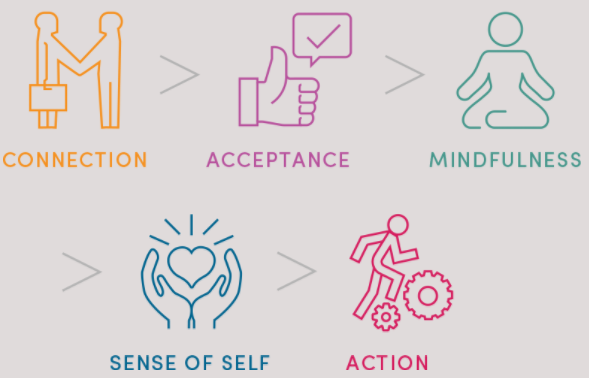Mindfulness of Permanent Change.
Our unique mindfulness-based treatment philosophy empowers patients through Connection, Acceptance, Mindfulness, Sense of Self, and Action – CAMSA®.
We help patients understand the roots of their eating disorder, so we can more quickly set them on the path to a resilient, lasting recovery. CAMSA® creates mindfulness of the biological, psychological, social and spiritual issues contributing to the eating disorder. Empowered with this understanding, patients can develop better coping mechanisms and stronger recovery skills to serve them throughout their life.
Our unique mindfulness-based treatment philosophy empowers patients through Connection, Acceptance, Mindfulness, Sense of Self and Action. Learn how by calling (866) 771-0861.
Connection: Therapeutic interventions like group and individual therapy sessions take place in an environment of openness and support. Each day, we give patients opportunities to build connections to themselves, to those who support them, to their body, their mind, and their spirit.
Acceptance: Patients learn to accept they have an eating disorder. Then they work toward accepting their thoughts and feelings, strengths and weaknesses, and the reality of the eating disorder. Acceptance of “self” empowers patients to make the changes that promote recovery.
Mindfulness: Mindfulness is the practice of being aware and connected in the moment. We help patients focus on being mindful of their recovery process, and take a non-judgmental stance in their daily life. We help them identify and focus on their personal values as they learn to mindfully live their life.
Sense of Self: We help patients work toward recovery by learning to define and develop their authentic selves. They build a sense of identity, and develop self-awareness and self-worth through traditional talk therapy and psycho-education as well as art, drama, movement and yoga therapies. Patients actively express their authentic selves and become reconnected to their bodies and minds in new, creative and healthy ways.
Action: Patients learn how to apply the skills they learn in program to their real-life situations to sustain recovery. It requires lots and lots of practice. Recovery may mean taking steps that feel risky, but our team is here to support, encourage and model recovery at every step.

